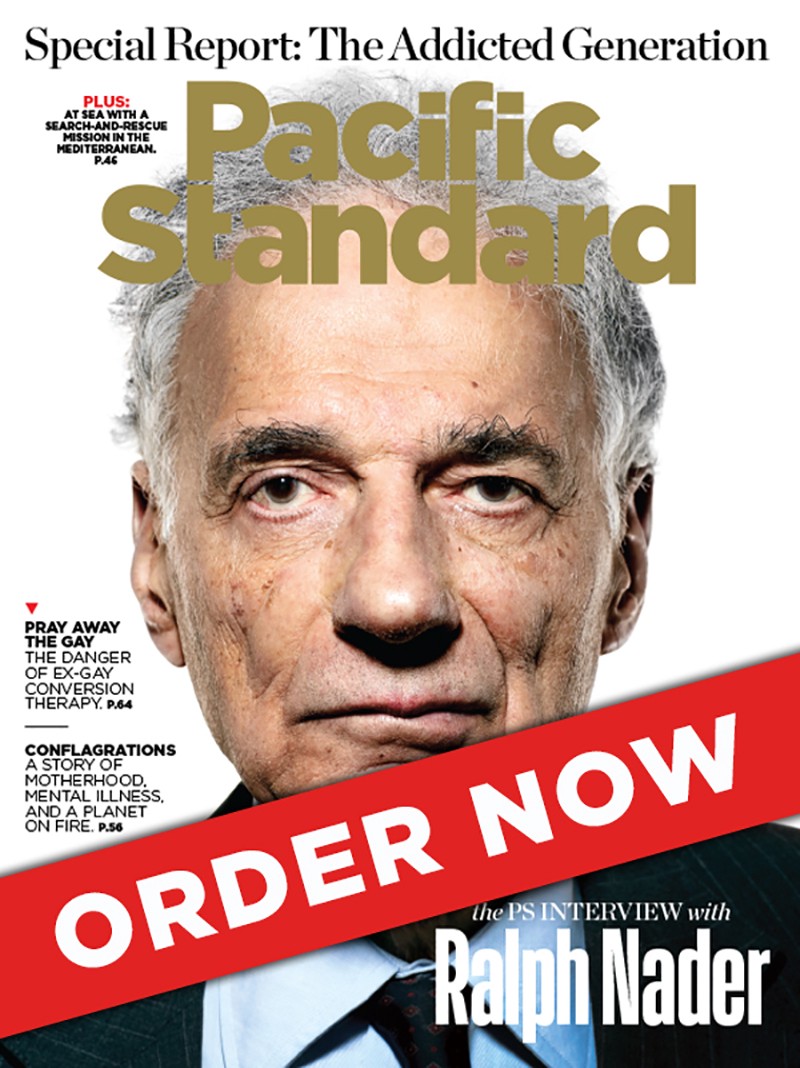This issue marks my first full year as editor-in-chief of Pacific Standard. While I’ve been with the magazine for years, first helping to expand our Web presence and the impact we could have through daily journalism and reporting, it’s only over the past 12 months that I have come to learn what readers want and expect from us in a bimonthly print format.
This is a medium we remain committed to, but a medium that is, in the larger industry, struggling. As other publishers were moving resources from print to Web, we put our heads down nine months ago to think through how we could make a magazine worth printing in 2016.
Throughout the fall and winter, the Pacific Standard team gathered in coffee shops and conference rooms to completely make over this object before you. We began by re-considering and re-affirming those things that set us apart from all the other outlets vying for your support and attention, and then we rolled up our sleeves and overhauled the magazine page by page.
The result is an all-new reader experience: a distinctive and compelling combination of stories that matter with visuals that beckon. We’ve fine-tuned your favorite niches, created several new sections and departments, expanded the number of pages reserved for top-shelf longform features, and introduced interviews and photo essays into the mix. You’ll find the first of these — a wide-ranging conversation with Ralph Nader, and a photo essay tracing the work of a ship in the Aegean Sea rescuing refugees fleeing dictatorships, famine, and civil war — in this issue’s feature well.

The new Pacific Standard is at once bold, classy, and indispensable — equally at home in your beach bag or on your coffee table. With this new format — and on the re-designed PSmag.com — we’re doubling down on our mission to combine research with narrative and investigative reporting, telling stories across platforms about society’s biggest problems and the people attempting to solve them. Whether you think we’ve missed the mark, or you want to let us know what we should be doing more of, we welcome your feedback.
We aspire to be a go-to destination for concerned and civically engaged citizens interested in improving both private behavior and public policy to promote a more fair and equitable world. We can’t do that without you.





